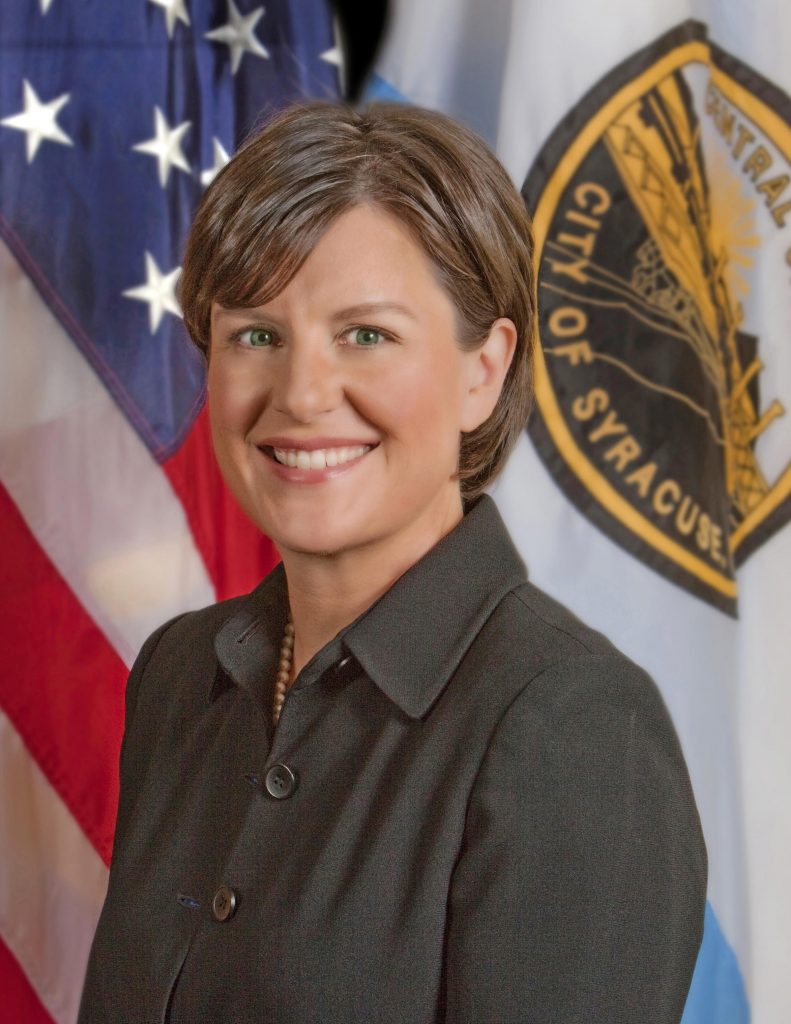
Stephanie Miner is the Serve America Movement candidate for governor of New York. Miner is running alongside Michael Volpe, the Serve America Movement candidate for lieutenant governor. Miner served as mayor of Syracuse, New York for nine years. She holds a law degree from the University at Buffalo.
1. Fighting corruption at the state level is a big concern for citizens across New York during this election cycle. What is your plan to tackle corruption in Albany?
“Our state has a culture of corruption. No branch of government has been untouched by scandal, often resulting in ethical or criminal charges. Our current system clearly does not do an effective job of monitoring itself. We will eliminate [the] Joint Commission on Public Ethics and replace it with an independent entity similar to the model used by the judiciary, which monitors elected officials and autonomously investigates as necessary, limit outside compensation of statewide officials and state legislators to 25 percent of their salaries and ban anonymous campaign contributions that circumvent donation limits.”
2. What, in your opinion, are the biggest issues facing New York? How do you plan to handle them?
“The biggest challenge facing New Yorkers are high costs and poor-quality services. Instead of investing in infrastructure, Albany spent $10 billion on tax breaks for campaign contributors with no results to show for it. Every single one of [Gov.] Andrew Cuomo’s signature economic development initiatives has been a failure. Worse, people are going to jail for their role in perpetrating them. Meanwhile, our mass transit, road, water, energy and Internet services are in disrepair. We will abolish economic development giveaways and invest in our crumbling infrastructure. We will use data and evidence to drive decision-making and coordinate across private- and public-sector agencies to stretch dollars and deliver measurable progress for residents. In New York City, we will fund the Metropolitan Transportation Authority (MTA) to bring subways into good repair, and for the 57 counties outside of New York City, we will take over Medicaid costs and reduce property taxes.”
3. The implementation of the Excelsior Scholarship radically changed New York’s postsecondary education landscape. How do you plan to further efforts to make education accessible and affordable to young people across the state?
“Despite Cuomo’s promise of a free college education, three out of every four applicants for the Excelsior Scholarship was rejected. In practice, the program has too many barriers and strings attached, preventing many from being able to take advantage of it. In addition to reducing barriers to the Excelsior program, we will expand course access, including online options for the 54 percent of New York students who do not have access to AP courses. Students who take AP courses are more likely to matriculate and graduate college, particularly among low-income students. We will also make it easier to apply credits from an associate’s degree to a bachelor’s program, earn credits before college through apprenticeships, work and volunteer experiences and invest in college and career school models.”
4. Why should students and young people across New York vote for you?
“I believe that younger generations in New York recognize that the two-party system has failed to address the problems New Yorkers face. New York is not working. One million people have left to seek opportunity elsewhere since 2010. Economic growth upstate trails the nation by 50 percent, and our subways don’t work downstate. This has a significant impact on young people, who traditionally earn less, have more debt and are more mobile than older New Yorkers. If we don’t invest in our underlying ability to create economic opportunity for all New Yorkers, we may see an entire generation walk out the door. I grew up here, I went to school here and I know that young people [can] thrive in New York if we just clear a path for them to do it.”


